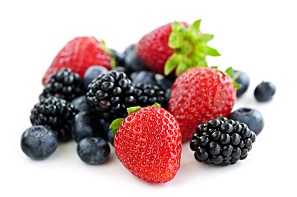Submitted by the Baylor College of Medicine, please share your thoughts below…..
 In a study of 400 fourth and fifth grade children who were asked to create implementations (action or coping plans) while playing a video game promoting fruit and vegetable intake, researchers at the USDA/ARS Children’s Nutrition Research Center at Baylor College of Medicine and Texas Children’s Hospital found that children increased meal-specific fruit and vegetable intake. Their report appears today in the Journal of Nutrition Education and Behavior.
In a study of 400 fourth and fifth grade children who were asked to create implementations (action or coping plans) while playing a video game promoting fruit and vegetable intake, researchers at the USDA/ARS Children’s Nutrition Research Center at Baylor College of Medicine and Texas Children’s Hospital found that children increased meal-specific fruit and vegetable intake. Their report appears today in the Journal of Nutrition Education and Behavior.
“Few children eat enough servings of fruit and vegetables each day,” said Dr. Karen Cullen, professor of pediatrics at Baylor and the CNRC and first author of the paper. “These foods are part of a healthy diet, and may reduce the risk of some chronic diseases including cardiovascular disease and certain cancers. So interventions to help children choose and eat more fruit and vegetables are important.”
The ten-episode video game, Squire’s Quest II: Saving the Kingdom of Fivealot, was designed to both entertain and promote behavior change. The children were divided into four groups based on the type of implementation intention, specific plans, created during goal setting. The four groups were: no implementation intention, action plan (identifying fruit and veggie intake specifics of what, when, where), coping plan (identify common barriers to eating fruits and vegetables and ways to overcome them) and both action and coping plans. Children completed three 24-hour dietary recalls at baseline and after six months.
Parents received a weekly newsletter and a link to a website where they could access information on their child’s weekly goals, suggestions for supporting achievement of goals and ways to overcome common barriers to help their family make healthy food choices.
Researchers found that those children in the action and coping groups reported higher vegetable intake at dinner, and all groups had significant increases in fruit intake at breakfast, lunch and snack time.
“The results suggest that including implementation intentions in the goal-setting process of interventions may help children achieve their goals. Future research should continue to investigate the use of implementation intentions within interventions to improve health behaviors,” said Cullen.
Others who took part in the study include Dr. Debbe I. Thompson, a USDA scientist, and Yan Liu, both with Baylor.
